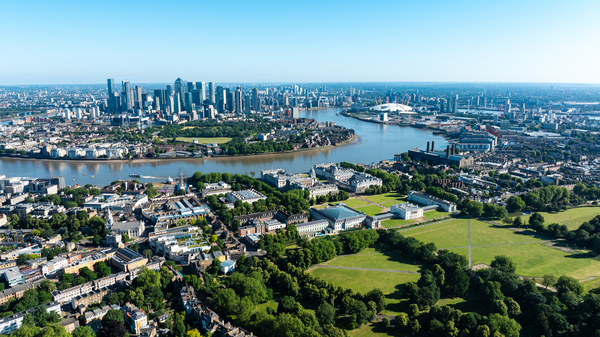The Difference Between GMT and UTC
Greenwich Mean Time (GMT) is often interchanged or confused with Coordinated Universal Time (UTC)—but they’re not quite the same.

When working across time zones, it’s crucial to state local times and time differences clearly and without ambiguity.
©iStockphoto.com/DOUGBERRY
When you want to express the time in a time zone, do you use UTC or GMT as a reference point?
It may seem like a moot question—after all, both share the same current time. So, in practice, saying that New York is 5 hours behind UTC is the same as saying that it’s 5 hours behind GMT.
However, there are two good reasons to use UTC instead of GMT.
UTC vs GMT: What’s the Difference?
Let’s start by defining the main difference between the two:
- UTC is a time standard officially used to determine the civil time in time zones worldwide.
- GMT is a time zone observed in some European and African countries.
UTC: the World’s Time Standard
So, the first reason to use UTC (Coordinated Universal Time) is that it is the correct, official choice. The world’s governments and regulatory bodies have agreed to use it as the sole global reference point for time zones.
When a country determines its time zone, the law text will show the difference, or offset, of the local time from UTC. For example, Japan has decided to be nine hours ahead of UTC, so the country’s time zone, Japan Standard Time (JST), is officially defined by its offset of UTC+9.
GMT: Just Another Time Zone
Meanwhile, GMT (Greenwich Mean Time) is a time zone, not a time standard. Using it as a reference point for other time zones is technically incorrect.
Like all other time zones, its current time is derived from UTC—it just so happens that the UTC offset is zero. So, GMT equals UTC, and a GMT clock ticks in perfect unison with a UTC clock.
Greenwich Mean Time Doesn’t Equal Time in Greenwich
The second—and perhaps more important—reason not to use GMT when communicating time differences is that it can lead to confusion.
Greenwich Mean Time is one of the most well-known time zones worldwide. After all, it used to be the world’s time standard before UTC came along. Most people will know that it was initially based on the mean solar time at the prime meridian that runs through the Royal Observatory in Greenwich, England—hence its name. By extension, people tend to associate GMT with the time in England.
However, while the United Kingdom observes GMT as standard time, it doesn’t do so all year: Like most other European countries, the country uses Daylight Saving Time (DST). Every March, Brits switch to British Summer Time (BST), making their clocks run one hour ahead of GMT (UTC+1).
In our experience, this is where people often go wrong: equating GMT with the time in the UK. Quite regularly, our support team responds to messages about missed meetings or supposed mistakes in our Time Zone Converter or Meeting Planner—all because of this false assumption.
So, to be safe, we recommend you use UTC when communicating about time zones and time differences.

Greenwich Park with Canary Wharf, one of London’s financial districts, in the background. Many people associate Greenwich Mean Time with the time in the United Kingdom, which can lead to confusion during parts of the year.
©iStockphoto.com/CHUNYIP WONG
UTC, GMT, and Daylight Saving Time
Speaking of clock changes, it is worth noting that neither UTC nor GMT ever changes for DST.
They keep ticking away at the same synchronous pace, even though countries like the UK, which use GMT as standard time, switch to different time zones when DST begins.
By the way, that’s why you should always select actual locations when using our Time Zone Converter or Meeting Planner instead of entering UTC, GMT, or any other time zone. That way, all clock changes will be automatically taken into account.
